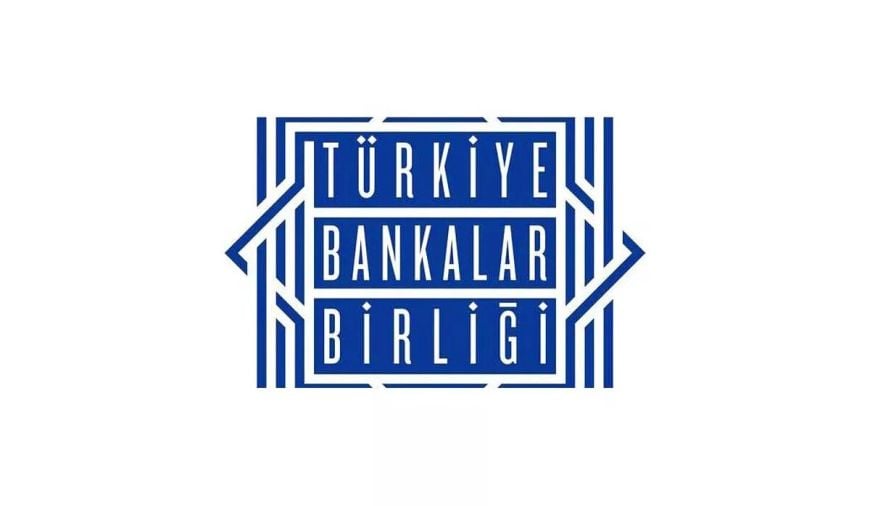Sooner or later (but usually sooner), many foreigners moving to Turkey find themselves needing to select a bank for keeping their card account, deposit, and bill payments.
Initially, opening an account in a bank is required during the property buying phase. This is used to issue the mandatory currency sale confirmation DAB, partially settle with the seller, and then use this account to pay for utilities.
Banking System of Turkey
The banking system accounts for almost 80% of the country's financial sector, which is not surprising – it is well developed in Turkey.
The three state banks are: Ziraat Bank — the country's oldest institution, which started operating in the Ottoman Empire times, Halkbank and Vakıfbank.
These are not all the public banks in the country, but the rest do not work with individuals, only with entities.
There are about fifty private and investment banks, including foreign ones, in Turkey.
The largest share of transactions and financial resources falls on Is Bank, Garanti BBVA, Yapi Kredi Bank and QNB Finansbank.
The American Citibank, German Deutsche Bank, Dutch ING Bank also operate in the country.
All institutions are regulated by the Turkish Banks Association — Türkiye Bankalar Birligi.

The range of services in most banks is approximately the same:
- they offer clients debit account service (current and term),
- loan issuance,
- plastic cards,
- currency exchange,
- transfers, including through the SWIFT system.
But the fees for account transactions can vary greatly.
Rating of Turkish Banks by Asset Size
Asset size is an objective measure, which allows to assess the reliability of the bank and its attractiveness for clients.
However, this does not mean that you need to choose a bank precisely from the ones listed below, perhaps another credit institution will suit your needs better.
-
Ziraat Bank. This is the oldest governmental bank in the country, with its head office in Ankara. It works with both private individuals and organisations. At the beginning of 2022, the total size of the bank's assets was around 1.1 trillion lira. The number of ATMs throughout the country is over seven thousand.
-
Isbank. The bank was founded in 1924 with its head office located in Istanbul. It has over 1,200 branches across the country, and more than 6,500 ATMs. The total asset size as of the beginning of 2022 was approximately 770 billion lira.
-
Garanti Bank. Established in 1946, it mainly serves private individuals as well as small and medium businesses. It has around 900 branches across Turkey, with a total asset size of about 570 billion lira.
-
Halkbank. Founded in 1933, with its main office located in Istanbul. The bank operates over 1,000 branches in the country, with total assets at the beginning of 2022 amounting to over 710 billion lira.
-
QNB Finansbank. The assets of the bank amount to about 260 billion lira; it has 473 branches in Turkey and nearly 4,500 ATMs. Until 2018, the bank was called Finansbank A.S.
Other major (and reliable) banks in Turkey include DenizBank, Akbank, and Yapikredi. Some of them specialise in certain areas, for instance, issuing loans to students, auto loans, and so forth.
Russians usually choose Deniz Bank, Ziraat, and Vakıfbank to open accounts.
As of August 2023, other banks refuse to open accounts for holders of Russian passports.

How Banks Operate in Turkey
When selecting a bank for services, pay attention to the operating hours of its branches as many issues will need to be addressed in person. For instance, you can only open an account in person; it is not possible to do it online.
Majority of Turkish banks operate on weekdays from 8:30 am to 5:30 pm, and weekends are off.
At airports, major banks have branches that operate round the clock.
If you intend to open an account, it is better to visit the bank in the morning (lunch usually starts at 12:30 pm and lasts an hour) - they are likely to refuse you towards the end of the working day, citing the process is slow.
Opening an Account for a Foreigner
The main thing to know about banking services in Turkey for foreigners is that every branch of the same bank can set its own rules. This is particularly relevant when it comes to opening accounts.
In one branch, they may refuse to open an account without a residence permit or deposit, and in another (of the same bank) they may open it without any questions. Deposit is usually required for a term of a week to a month, and its amount can range from 5,000 to 10,000 dollars or euros.
If you ask to justify these requirements in writing, you may be shown a plain sheet without signatures and seals with a printed text, and even with pencil-written figures. But that's normal here.
Standard documents required to open an account in a Turkish bank include:
- Vergi Numarası — Turkish Tax Number.
- Passport.
- Ikamet.
- Adres Kayıt — Registration address at the place of residence. Sometimes, instead of this, they request any utility bill payment receipt with an address — Fatura. The receipt must be issued in your name, even if you're renting the property. For this, it is enough to contact the utility provider with a statement and a lease agreement. There's no need to change all bills; a single bill, like water or electricity, is sufficient.
Instead of a residency permit, you might be asked to make a deposit or pay for insurance. Some banks like Garanti BBVA will not open accounts without a work permit, known as the Çalışma İzni.
It's important to understand that conditions constantly change and what's applicable today might change tomorrow. Banks not only operate for their own benefit, but they also seek to minimise risk, especially when dealing with citizens of countries under international sanctions.
Once you've received your residency permit and registered your address, opening an account with Turkish banks will become easier. At this point, those banks that previously refused might agree to open an account for you.

Cards, fees, transfers and online payments
Most banks allow you to open accounts in liras, euros, and dollars.
ATMs offer the same currency options, but not all of them allow deposits as well as withdrawals; many are withdrawal only.
Note: Every bank has daily cash withdrawal limits, all different; if you wish to withdraw a large sum, it's best to do it in a branch following a prior request.
Cash withdrawals in liras, euros, and dollars from foreign cards are almost always subject to a fee, the amount of which is indicated beforehand. A message will appear on the ATM screen, and by pressing 'continue', you are automatically agreeing to these terms.
Main thing is - avoid using DCC conversion (Dynamic Currency Conversion), or you'll be charged not 1-2%, as usual, but a full 7-10%.
Remember that Turkish debit cards don't work in all foreign online shops, you might not be able to pay for car rental or accommodation on Booking.com with such a card.
For such purposes you can open a credit card, but this is even more complicated, you may be asked to deposit 120-140% of the amount. Essentially, you'll be offered to use your own money, but with interest.
Whether you want to accept these terms or not is your decision. In some cases, you can get by just by opening a virtual card and using it for online payments. These cards can typically be issued directly from the bank's mobile app.

As for mobile apps, all banks have them, and in most cases, not only in Turkish but also in English. You can pay utility bills, make transfers, block and reissue cards through the app - in other words, the standard set of functions.
When you're choosing your card's payment system, discard the idea of using Troy, even if the bank's manager recommends it. This system only works in Turkey, and not even everywhere; your card might not be accepted in some shops or restaurants.
When opening a card make sure you're aware of the bank's tariffs and limits on all types of transactions. You might find that you have to pay even for incoming transfers via SWIFT, and the maximum amount for incoming and outgoing transfers might be very restrictive.
If you're not just opening the account to pay utilities and aidat, but also for daily expenses or for some major transaction, first find out how much it'll cost you.
There have been instances where, for the withdrawal of 50,000 dollars from a DenizBank account, a fee of 1,000 dollars was sought from the account holder for "storage and issuance" of the money. Eventually, an agreement was reached to reduce the fee to 100 dollars, but the bank refused to cash out the money free of charge, citing a lack of currency.
This once again proves that each branch has its own rules, and also that with the desire and persistence, it is always possible to negotiate.
Important: The company Tolerance assists its clients, who are buying property in Turkey, with opening bank accounts and transferring money from abroad, obtaining the necessary DAB currency exchange certificate and transferring money when paying for real estate. Our specialists will do this quickly and very professionally.
See what else Tolerance Homes does for its clients in this video:
We will be happy to answer all your questions, reach us on Whatsapp +90 (532) 158 42 44
If you want to relocate to Turkey permanently, or buy an apartment in Turkey and enjoy seaside living, write to our specialists who will find the best options for your budget.
Also subscribe to our YouTube channel and Instagram page and get information straight from professionals!
Another channel to connect with us: Telegram

